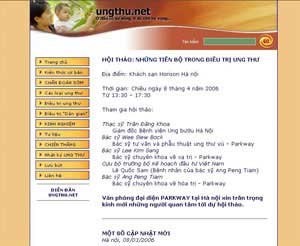It seems that in today’s world, where people often feel a lack of sharing, the term “share” has become ubiquitous, used frequently by everyone from familiar television hosts to young lottery ticket sellers. Whether browsing the web or engaging online, netizens also share information just as often.
 |
Day by day, our community continues to share a wealth of valuable information with one another. “Always there, always share“! – Always present, always sharing! This is the motto of modern online life today! |
The spirit of sharing is a clear “bright spot” in the online space. The value and utility of information can easily increase exponentially with the support of technology.
If we consider “sharing” as the “positive side” of information technology in general and the Internet in particular, can it overshadow the “negative aspects” that have been widely discussed in a world still deemed “virtual”?
Sharing Information
“Information explosion” is a phrase that remains popular today. Accompanying this phenomenon is the clear reality that alongside harmful and trivial information, there is also meaningful and valuable information that is not always quantifiable.
Alongside the streams of useless information that individuals inadvertently or deliberately encounter online, the sharing of beneficial information broadens each person’s worldview. Almost any type of information one may need can be found online, yet often, we receive intriguing information from others through links, recommendations, or tips without even searching for it ourselves.
Online forums exemplify the spirit of sharing in the digital space. A friend of mine, an editor at VTC, posted on a forum called the Vietnam Journalism Profession, seeking members to share materials on television. She received a response from a member she had never met, who worked at VietNamNet TV and mistakenly thought her nickname belonged to an older sister. They became friends, and notably, as colleagues, they had more opportunities to share. Here, the need for sharing was met accurately.
Even in chat, trust in sharing remains intact despite hearing comments like, “Why do people deceive each other online?” Alongside unverifiable information requiring caution, there are also many notices reminding users to be vigilant against viruses, spyware, and pranks or scams circulating online…
If you’re online, you will likely encounter messages like: “Hello everyone, there is currently a message circulating online: beautiful girls… or check this out… and link to http//www…
Please note this is a virus; do not click on that link to view it. Clicking on that link will automatically download and install dangerous malicious code on your machine.”
Such warnings can be posted by anyone wanting to remind or warn their friends. The author of this article knows that Mr. Trịnh Công Thanh, a young IT knight with disabilities, has sent hundreds of useful pieces of information like this to his “chat friends.” Thanh’s small yet impactful acts have spread valuable information to his friends without being “inactive” like his legs. Thanh tirelessly operates the website Agent Orange and Disability Forum, engaging in various charitable activities widely recognized by the community.
Sharing Time and Opportunities
There are projects funded by the government with billions of dong aimed at “computerizing” certain levels of education. They present products labeled as “shared software,” but often these shared resources end up unused, wasting money while yielding unclear results. The noble intention of serving the common good and sharing, for various reasons, results in a depletion of communal resources; there is sharing, but no one seems to benefit from it.
The “lesson” frequently reiterated is: When working for the common good, personal gain or “What do I benefit from this?” should not be the highest aim. In accordance with this principle, many useful software products and tools have been made available online for anyone, regardless of wealth, to use and download for free.
Computer users feel relieved as they benefit from tools that save both time and costs. This mirrors the natural selection process of life where software products are continuously upgraded to meet demands, and their value multiplies while costs decrease and effectiveness increases…
Conversely, simply using free software does not equate to sharing. Nguyễn Tử Quảng created the Bkav antivirus software, while Huỳnh Ngọc Ẩn designed the MFW1 tool to combat adult content websites, and the IT community has benefited from these for free, representing true sharing. However, if someone knows where to find valuable products or useful tools that aren’t free and shares that information with those in need, that too is a form of sharing that saves time.
The discussion surrounding open-source software is a significant “advance” in the culture of sharing in the global online community. Thanks to open-source software, many complex issues are finding resolutions, particularly the reliance on and high costs associated with proprietary software and operating systems from major corporations, especially in developing countries…”
Sharing Emotions
 |
Sharing online |
When Vietnamese student Vũ Anh Tuấn was murdered in Russia, the news sent waves of grief across various Vietnamese forums and websites. Young netizens truly created a significant sense of community spirit, and if one browses through the forums reading hundreds of farewell messages for Tuấn, they will witness the profound and simple spirit of sharing.
It was no coincidence that Phan Văn Hòa wrote the “sad fairy tale” on www.ungthu.net. This website became a place where Mr. Hòa shared his sorrow, a platform to express the grief of a husband for his wife who had passed away due to cancer – a rare method of expression. Today, the website has become a resource for anyone interested in cancer.
As someone online, it feels lacking when opening a chat window multiple times without receiving interesting or touching stories or links from friends. Some links, when clicked, can evoke strong emotions, especially during Christmas, holidays, or special occasions…
There are numerous informative pages and well-regarded articles online that are shared day after day. These often contain messages filled with emotion:
“When you meet someone you truly love, make an effort to seize the opportunity to become their other half. Because if that person leaves, it will be too late…
When you find a trustworthy friend, maintain a good relationship with them, as meeting a soulmate in life is not easy…“.
Countless such “pieces of advice” are posted online, often without clear authorship, but shared in the spirit of sharing through simple copy and paste. The action is straightforward, not difficult to perform like offering a smile, but what matters is whether the sender has the insight to filter out the good and the willingness to share…
Giving and receiving in the digital space (or what some call the “virtual” space) is not much different from giving and receiving in real life. As I write this, I firmly believe that the story of the sharing culture is far from over, as everyone, whether online or offline, has their own ways of sharing…
Day by day, our community continues to share a wealth of valuable information with one another. “Always there, always share”! – Always present, always sharing! This is the motto of modern online life today!.
B.D



















































